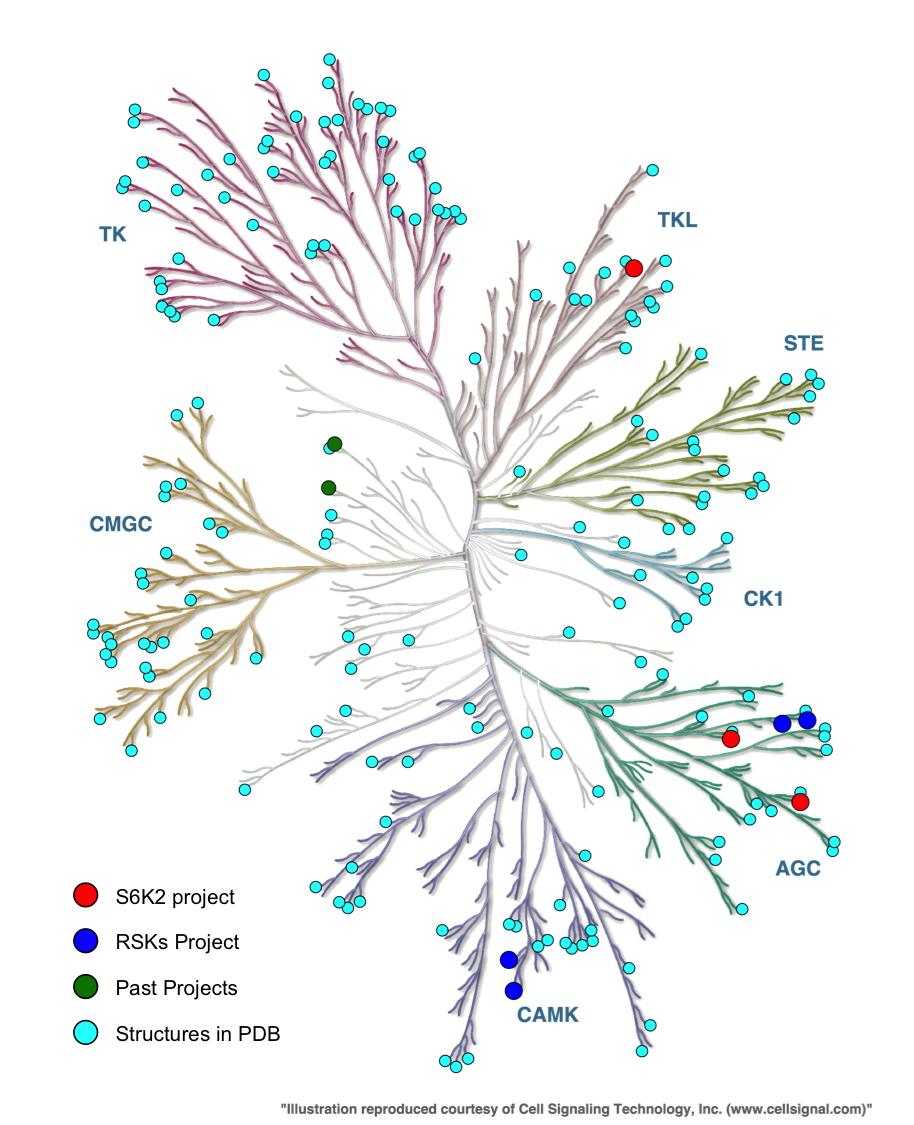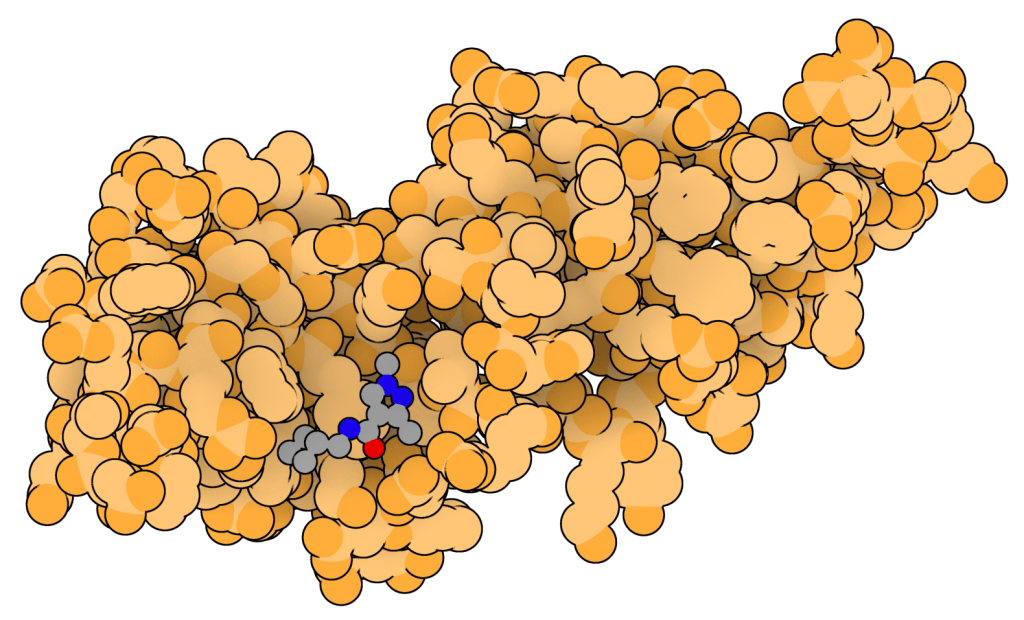Our main research interest is the characterisation of protein complexes that are part of signaling pathways, in normal and cancer cells. Our goal is to understand how the molecular machines that compose signaling pathways work together to transfer information.
We use a cutting-edge multi-disciplinary approach that combines biophysical, enzymatic, cellular and structural studies. We use X-ray crystallography, Nuclear Magnetic Resonance and Electron Microscopy to visualise macromolecules at atomic and near atomic resolution. At this scale we are able to dissect cellular processes at a molecular level and describe the details at the base of cancer formation or development, thereby providing a solid base for medical advance.

The main focus of our research is the study of phosphorylation cascades and protein kinases. Protein kinases are molecular machines responsible for the passage of information inside the cell and it has been shown that mutation and loss of regulation are intimately linked to the development of diseases. The relevance of kinases in modern medicine is highlighted by huge investments in the production of novel drug candidates able to modulate kinases activities.

In order to face new scientific challenges and study larger macromolecular assemblies or cellular pathways, we believe that it is indispensable to integrate a number of approaches that span from classic cell biology to atomic-resolution studies to computational analysis. For this reason we have active collaborations with Dr Ottavia Spiga and Prof Annalisa Santucci (University of Siena), Dr Attilio Vittorio Vargiu (University of Cagliari), Dr Marta Carroni (SciLife Laboratories Stockholm), Dr Oliver Pardo (Imperial College London), Dr Ulrike Bechtold (Durham University), Dr Radu Zabet (Blizard Institute), and Dr Greg Brooke (University of Essex).
My group is generously supported by the BBSRC, the Leverhulme Trust, the Wellcome Trust and King’s College London. We also have industrial collaborations with Atomwise, Apollo Therapeutics and Bicycle Therapeutics. We are also extremely grateful to Prof. Peter Nicholls and the family of Christine Desty for their donations, which have supported PhD and MSD students working in the Prischi group.
